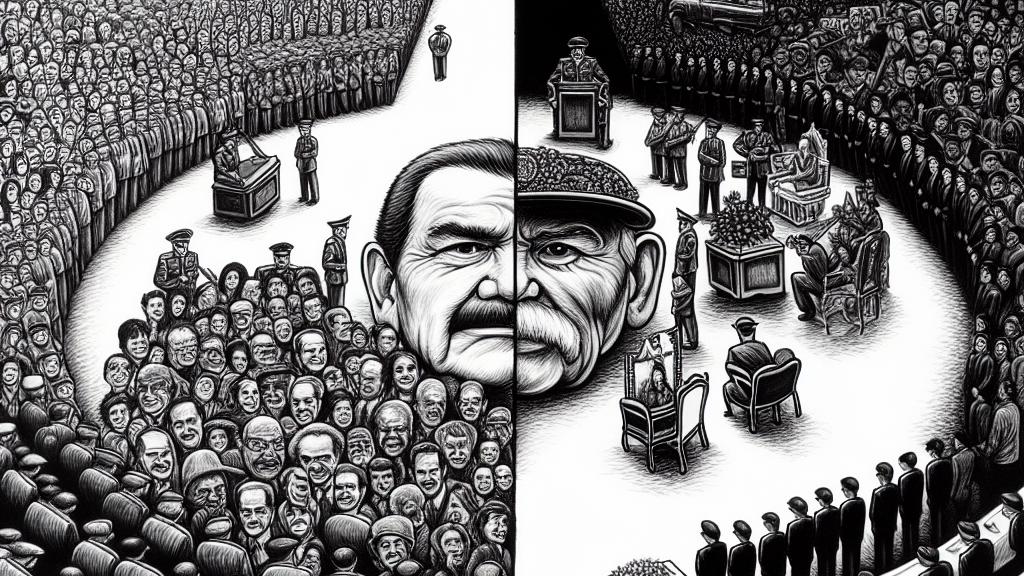Remembering Alberto Fujimori: A Complex Legacy of Leadership and Controversy
Overview
- Alberto Fujimori, the former President of Peru, passed away at 86 after a long struggle with cancer.
- His presidency from 1990 to 2000 was characterized by dramatic economic reforms interwoven with grave human rights concerns.
- Fujimori's intricate legacy continues to provoke passionate debates among supporters, critics, and historians alike.

Fujimori's Passing and Its Impact
Alberto Fujimori, the controversial former President of Peru, died on September 11, 2024, in Lima at the age of 86, following a courageous battle against tongue cancer. His family announced the news through social media, urging admirers to pray for his eternal peace. As Peru mourned, this moment reignited intense discussions about the multifaceted legacy he left behind. Prime Minister Gustavo Adrianzen expressed heartfelt condolences, illustrating the profound impact Fujimori had on the nation’s political landscape. With uncertainties surrounding the details of his funeral—whether it would be a grand state event or an intimate family gathering—many Peruvians began reflecting on the complexities of his rule, which was as polarizing as it was transformative.
A Presidency Marked by Conflict
Fujimori’s tenure, which lasted from 1990 onwards, was nothing short of tumultuous. He implemented sweeping economic reforms, combatting rampant inflation and revitalizing a faltering economy; these actions garnered him significant support, especially among the urban poor. However, his increasingly authoritarian approach raised ethical concerns. For example, the dissolution of Congress in 1992—an act he justified as a necessary security measure against terrorism—underscored his readiness to sacrifice democratic processes in pursuit of control. Furthermore, his administration’s aggressive measures against the Shining Path guerrillas spotlighted the moral gray areas of his leadership; while these tactics significantly weakened insurgent power, they also led to numerous human rights violations, with many innocent lives caught in the crossfire.
The Echoes of Fujimori's Legacy
The legacy of Alberto Fujimori continues to evoke strong emotions, shaping the political climate in Peru long after his departure from office. His supporters proudly depict him as the savior who restored national stability and economic growth, often citing his success in curtailing terrorism during a volatile period. Conversely, critics adamantly argue that he embodied the dangers of unchecked power, with his administration being marked by corruption and abuses of authority. Recently, Keiko Fujimori announced her intention to run for the presidency again in 2026, reflecting the enduring influence of her father’s political lineage. As Peru stands at a crossroads, grappling with its feelings about Fujimori's leadership, it is evident that his story is far from over; the debates about his legacy will resonate through generations, prompting ongoing reflection about the balance between liberty and security.

Loading...